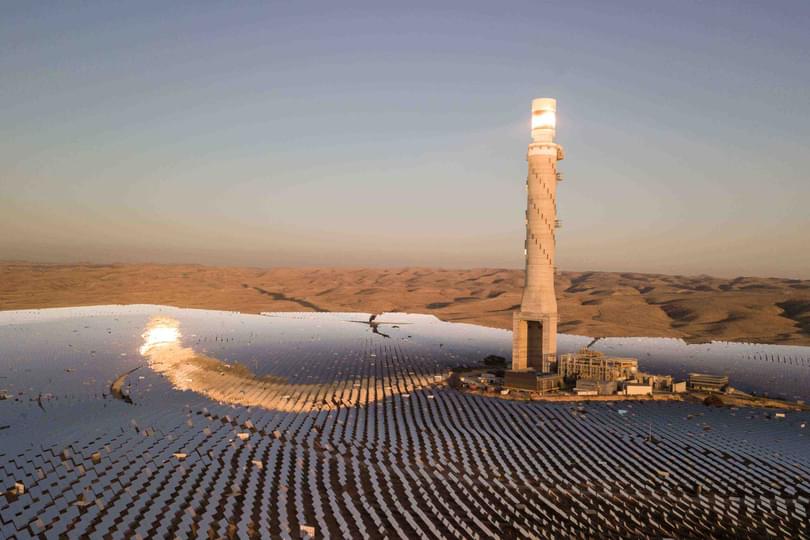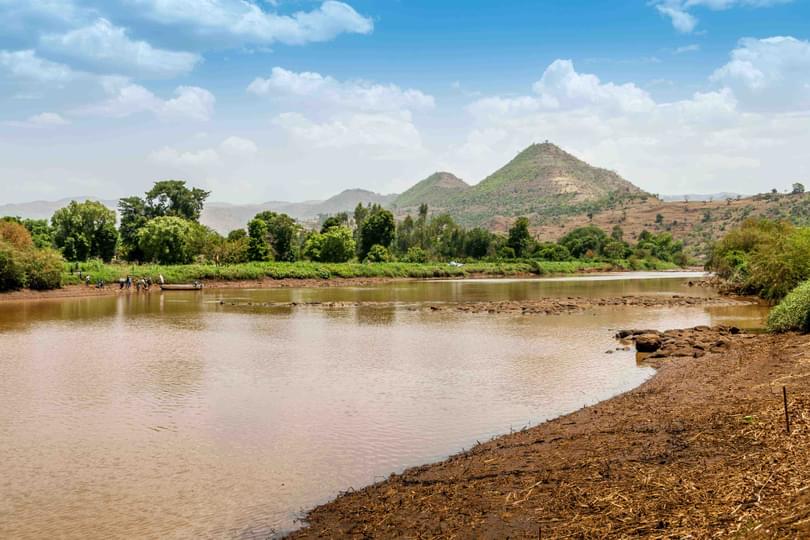
The Oxford Martin Programme on Transboundary Resource Management came to a close not long ago and as such there is an opportunity to reflect on what we mean by this concept and how increasingly relevant it is during these geopolitically volatile times. Two of the programme’s directors explain more.
How does transboundary resource management work? Well, the first thing to understand is that it can involve various resources. Two resources we focused on in this particular project were water and energy. But one can also think about traded goods, food, minerals, manufactured information even. In the natural resources realm, there has been a bit of a congregation around the so-called nexus of interactions between food, energy, climate, water and the environment. It is this kind of space that we've been studying from a resources perspective. These shared resources in some instances will span national boundaries, and this challenges sovereignty and traditional ways of thinking about how we govern these resources. You then need to think about new ways of management to deal with such transboundary problems.
However, cooperation doesn't always come naturally in these cases, largely because of national sovereignty considerations, and what flows from this. This is also part of what we set out to explore – that cooperation over the management of resources could be of benefit across the board to all parties. Questions over resources obviously become more contested when they are scarce, and tensions can arise as a result of this. On the flipside, current thinking about transboundary energy has for the most part been stimulated by technological innovation. Increasing use of renewable energy supplies, which are inherently variable, means that there are greater benefits of interconnecting power systems across borders in order to balance supply and demand. Solar panels can be particularly cheap, especially in parts of the world with a lot of sunshine, so there are growing opportunities to trade electricity in order to balance supply and demand.

Solar farm in the Negev Desert
Water is another example where we have been able to arrive at deals, albeit in places where you would expect such agreements to happen in the first place. For example, transboundary rivers within the European Union are already governed by appropriate arrangements, but you would expect this to happen given these states are part of the same bloc. It is a similar scenario for the USA and Canada. Although negotiations between the USA and Mexico over the Colorado River have been more problematic, both countries have still managed to get somewhere.
So, what obstacles threaten transboundary resource agreements? Conflict is certainly one where all forms of cooperation can break down. There can be instances where continued cooperation is dependent upon investment, and that can bring a halt to projects if political tensions deter investors. There are also situations where countries have tried to do things on their own and are not cooperating with their neighbours. In other words, these transboundary resource issues often get entangled with other national security and diplomatic tensions.
However, challenges can also arise from the simple deployment of established technology. For example, if we take the work we have been doing with countries in the Nile River Basin – particularly Egypt, Sudan and Ethiopia – dams built in the region to help generate hydro-powered electricity have had cross-border repercussions for a very long time. Such challenges have arisen regularly and often not been successfully managed. There are transboundary river basins all over the world, and the relationships between countries that sit across these basins can be as tense as their Nile counterparts. Examples of these include the Ganges boundary between India and Bangladesh and the series of transboundary rivers that flow out of China and into their neighbouring countries.

The Blue Nile River in Ethiopia
Getting to a stage where we could develop a programme with the Oxford Martin School on transboundary resource management was the culmination of decades of research work. Even before Jim did his PhD, he was working on flood risk analysis – this was as long as 35 years ago. He eventually ended up running big programs conducting infrastructure systems analysis. During that time, a set of coincidences led to him to cross paths with Richard and the other researchers on the Oxford Martin programme. Michael Gilmont, for example, who had been hired by Jim and was working on another Oxford Martin School project, was already interested in the Jordan River Basin. Richard himself had a background working on international organizations and conflict management, looking at issues such as preventive diplomacy, peacekeeping, peacebuilding largely in the context of the engagement of multilateral organizations. He joined the programme after Jim and his colleagues had already conceived the main thrust of the research, because there was a recognition that political, international relations and diplomatic dimensions needed to be considered.
Our work on transboundary resource management with the Oxford Martin School involved quantitative analysis of water and energy in Israel, Palestine, Jordan and the Nile Basin. However, we were already well-versed in carrying out such research. In principle, the most challenging part of this project – which is probably a predictable lesson – was how challenging it was to get data, which in itself was highly politicised. We spent a long time in dialogue with partners of all the countries and getting people around the table.
The project began with a workshop here in Oxford and two more in Cyprus. Organising those was a lot of work alone, and then when we convened we had to work through the technicalities of obtaining the data as well as the surrounding issues and tensions. The process was just as important as the outputs and it would have been impossible to obtain some of the data without the trust of our participants. This says a lot about what we were able to achieve as a University and as a School – we were a party that didn't have any particular interests and this facilitated critical communication among our stakeholders.
Although our programme conducted research, our focus – particularly in the latter stages – was much more upon how this basis of information sharing, communication and collaboration could be taken forward in the context of specific projects. Also, how the kind of forum that we had created in relation to transboundary issues could be developed. Any gains from transboundary cooperation may have been environmental in terms of contributing to sustainability or mitigating some of the climate change-related risks, but there were also gains from cooperation as well as economic gains. So, we do have this firm conclusion that it is possible to work in areas where challenges cross boundaries and where there is potential for environment, environmental, economic, and other gains; and that all of the above can be achieved through cooperation and in partnership with local stakeholders.
From a research perspective, there are still plenty of unanswered questions. For example, we looked a lot at the quantity of water but didn't get into any depth in relation to quality. We discussed agriculture, but didn't have any particular agricultural expertise. So, there are plenty of future research avenues as well as researching the overall process and diplomatic context. Wildlife conservation, however, was something that occurred to us as an area where states would benefit from greater cooperation and a similar model to that adopted by our programme could be applied to meet those challenges.
This opinion piece reflects the views of the author, and does not necessarily reflect the position of the Oxford Martin School or the University of Oxford. Any errors or omissions are those of the author.

